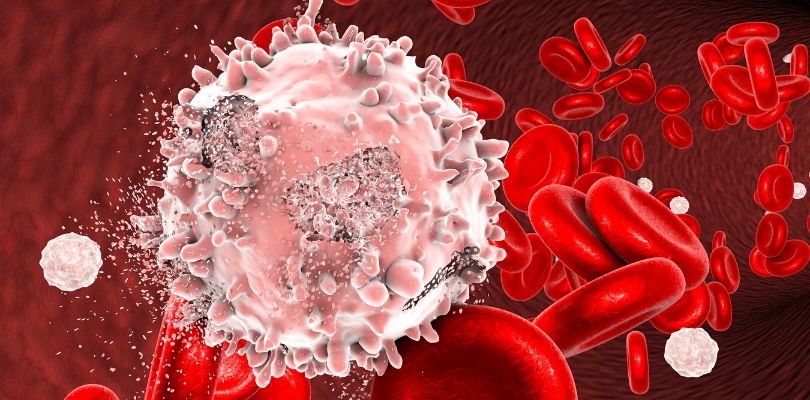What Is Oral Cancer?
Oral cancer, sometimes known as mouth cancer, is a form of cancer which can develop anywhere in the lining of the mouth or throat. Oral cancer usually affects the tongue, lips, cheeks, gums or palate. It can also affect the salivary glands, throat or tonsils, although this is less common.
What Causes Oral Cancer?
Around 90 percent of cases of oral cancer are caused by what are known as squamous cell carcinomas. This is a type of cancer which starts in the flat, skin-like cells which cover the lining of the mouth and throat.
Squamous cells become cancerous when they are exposed to environmental toxins such as tobacco or alcohol over a long period of time. This causes the DNA of the cells to change, and they can begin to grow out of control, eventually developing into a tumor. When these cells become cancerous, they can easily spread to the surrounding tissues, or to other parts of the body via the lymphatic system.
Who Gets Oral Cancer?
Oral cancer is most common in older people, between the ages of 50 and 74 years. Although it is less common in younger people, it can still affect them. In these cases, oral cancer usually stems from an infection with the human papillomavirus (HPV). This is a virus which affects the lining of the mouth, throat, genitals, and anus. It is highly contagious and is spread by direct skin to skin contact, usually during sexual intercourse.
Both men and women can get oral cancer, but it is more common in men.
Risk Factors for Oral Cancer
The most significant risk factors for developing oral cancer are smoking tobacco and drinking alcohol. It can also be caused by chewing tobacco or betel nuts (a type of nut frequently chewed in many Asian cultures), infection with the HPV virus, or using sunbeds.
It is thought that a poor diet and genetic factors could both increase your chances of developing oral cancer. You may also be at a higher risk if you have low immunity due to HIV/AIDS treatment or are on immunosuppressant medications following an organ transplant.
Symptoms of Oral Cancer
Some of the most common symptoms of oral cancer include:
- Mouth ulcers which take several weeks to heal
- Unexplained lumps in the mouth which do not disappear with time
- Red or white patches inside the mouth
- Unexplained pain in the mouth, throat or jaw
- Unexplained bleeding in the mouth
- Loose teeth
- Frequent bad breath
- Pain or difficulty when swallowing
- Swollen lymph glands
- Unexplained weight loss
Chronic myelogenous leukemia is a type of slow-progression disease in which the bone marrow creates too many white blood cells.
If you are suffering from any of these symptoms, it is important not to panic. Many of them will have an explanation other than oral cancer. However, some of these symptoms can be early warning signs of cancer, and you should always have them investigated by your doctor or dentist, especially if they last longer than three weeks.
Treatment for Oral Cancer
There are three major options available for the treatment of oral cancer: surgery, radiation therapy, and chemotherapy.
Depending on the location of the cancer and how much it has spread, you may be offered surgery to remove the cancerous cells. Your surgeon will do their best to preserve the appearance and function of your mouth while ensuring that any cancerous cells are taken away.
Radiation therapy and chemotherapy may also be used in the treatment of oral cancer. Radiation therapy involves blasting cancerous cells with high power x-rays to kill them, while chemotherapy works in a similar way but using strong medication rather than x-rays.
In most cases, a combination of surgery and either radiation therapy or chemotherapy is most effective. This ensures that any cancerous cells are removed, and reduces the chances of them coming back. You will need to continue radiation therapy or chemotherapy for at least four months to reduce the risk of the cancer returning.
How to Prevent Oral Cancer
You can reduce your chances of developing oral cancer in a number of different ways. First and foremost, if you smoke or chew tobacco, you should stop as soon as possible. There is plenty of help and support available to make this easier; just ask your doctor or pharmacist for advice.
If you drink alcohol, it is important to drink in moderation and stick to the recommended limit of 10 drinks per week for women and 15 for men. It is best to spread your drinking out over several days of the week, but be sure to keep at least two alcohol-free days each week to give your body time to recover.
You can reduce your risk of contracting HPV by practicing safe sex. Always use condoms or dams when engaging in intercourse or oral sex. This will reduce your risk of sexually transmitted infections including HPV.
It is also important to go for regular dental check-ups, especially if you smoke or drink heavily. These routine check-ups can help to identify the early signs of oral cancer and allow it to be treated before it has a chance to spread.
As with any type of cancer, the earlier oral cancer is detected, the better chance you have of making a full recovery. So if you have any symptoms which are concerning you, make an appointment with your doctor or dentist to discuss them as soon as possible.







